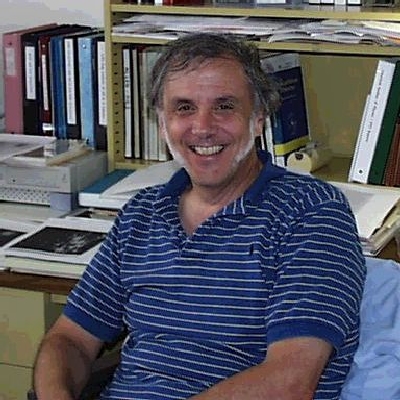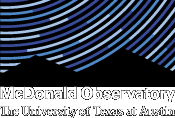Sneden
"I can remember the exact moment when I became interested in astronomy," says astronomer Chris Sneden, professor at The University of Texas. He was at his home in Pennsylvania, listening to a Pittsburgh Pirates baseball game on the radio. During the commercial break, he heard an advertisement for Saturday morning astronomy classes at the Pittsburgh planetarium. Since then, he says he "never, ever wanted to do a single thing other than astronomy. There was never a Plan B."
"They gave me much encouragement."
Chris attributes much of his success to his parents, Harold and Alice Sneden, who encouraged him to pursue his interest in astronomy. "They knew I was so pigheaded that I wasn't going to be stopped anyway," says Chris. "They gave me much encouragement."
"The very next college on the list was Haverford."
As graduation from his small, mill-town high school loomed, Chris visited his career counselor and inquired about studying astronomy in college. "I don't know anything about that," his counselor said, and gave Chris a book with colleges sorted by academic major. Chris quickly turned to the astronomy section and scanned down the list. "I got to Harvard and said, 'Ahh, I can't get into Harvard.' The very next college on the list was Haverford."
"This decision turned out to be a very good one."
Haverford College is a small Quaker college in Pennsylvania, the oldest institution of higher learning in North America. Today, it's a leading liberal arts college. "This decision turned out to be a very good one," Chris says. While there, he studied astronomy and received his Bachelor's degree in 1969.
Deep in the heart of Texas.
Chris then traveled south to Texas where he worked as a graduate student for astronomer David Lambert who was, then, a fresh new faculty member at The University of Texas. Chris was David's first graduate student and he says that "two or three people after me said that they paid for my sins. He made them work a lot harder." However, Chris obviously worked hard because he left Texas for a string of prestigious positions.
Indiana, California, Wyoming, and Washington
He went to Indiana as a postdoctoral researcher for a year and, then, to Santa Cruz, California as a research astronomer and lecturer. For three years, he worked at the University of Wyoming's infrared observatory where he was an assistant professor. Finally, he worked as an assistant professor at The University of Washington before returning to The University of Texas.
The Town Crier
Chris now holds the Rex G. Baker, Jr. Centennial Research Professorship in Astronomy and, recently, led this astronomy department as its chairman. (The current chairman is his former advisor, David Lambert.) Chris is also the editor of the Astrophysical Journal Letters, a special publication of the Astrophysical Journal that features new and exciting discoveries. Effectively, he is a "town crier" for the astronomical community, making important announcements to eager astronomers.
Encouraging his children.
Chris has been married over 20 years to Gail Sneden and has four children: Alan, Lisa, Brett, and Jeff. Alan is a medical doctor. Lisa holds a Ph.D. in criminal psychology, and Brett is preparing to be a pilot. Finally, Jeff, the youngest, recently graduated from The University of Texas with a degree in computer science.
"Anything with a ball and racquet."
In his free time, Chris enjoys playing tennis with his wife and friends. He also plays squash and racquetball -- "basically anything with a ball and racquet, anything to fool myself into thinking that I'm not exercising," he says.
Chris Sneden Rex G. Baker, Jr. Centennial Research Professor, University of Texas Ph.D., Astronomy, University of Texas B.A., Astronomy, Haverford College


